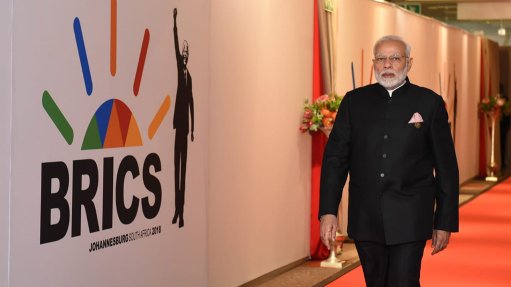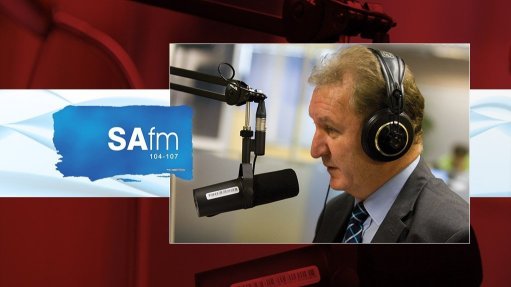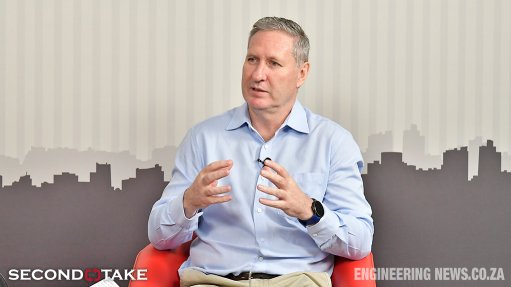Car-sharing represents ‘significant and exciting opportunities’ – Legacy Group
Considering South Africa’s many transportation challenges, the emergence of car-sharing represents significant and exciting opportunities for boosting socio-economic development and inclusive growth in the country, says automotive retailer, the Legacy Group.
“Unfortunately, many South Africans continue to grapple with an unequal, inefficient, and unreliable public transport system that hinders the efficient movement of people,” says Legacy Motor Group (LMG) public relations, marketing and customer experience GM Edward Makwana.
“But, as we’ve seen from the rise in car-sharing in many parts of the world, this model could provide a solution to many of the country’s transportation needs, offering an attractive transport alternative, particularly in urban areas.”
Car-sharing is a system where individuals use a shared car for a specified period, explains Makwana.
Typically, these users reserve a car through an app or website, and then pick it up from a designated location.
They are then free to use the car for their transportation needs and return it to the same or a different location when they are finished.
Makwana notes that this is a convenient, low-cost model which could appeal to thousands of households, especially in urban areas.
“With increasing interest rates, many South Africans struggle to afford their own vehicles and insurance costs, but car-sharing could offer both a more affordable alternative to private vehicle ownership, and a more convenient alternative to public transport and current ride-sharing platforms.”
Demonstrating the need for more efficient transport options, the 2020 National Household Travel Survey reports that as many as 17.4-million South Africans currently opt to walk to their destination, while 10.7-million individuals make use of taxis and only 6.2-million use a car or truck.
Additionally, with many commuters living far away from their workplaces, it is estimated that households spend between 15% and 30% of their disposable income on travel.
“Against this backdrop, car-sharing could provide the alternative solution needed to enhance consumers’ quality of life and reduce long-term financial commitments,” says Makwana.
Benefits
While there may be concerns regarding the impact of car-sharing on vehicle sales, Makwana believes the model may prove beneficial to businesses by allowing idle vehicles to generate additional revenue.
“The rise of car-sharing will not necessarily translate to fewer vehicle sales, as car-sharing businesses will be forced to update their fleets regularly because of high usage.
“In essence, this model may also attract new customers away from other, inconvenient public transport modes.”
“Car-sharing could hold additional benefits for commuters and the environment,” adds Makwana.
“For example, international case studies show that [it] could boost the fight against carbon emissions, as vehicle-sharing and ride-hailing companies tend to prioritise modern, low-emission vehicles that fit an eco-friendlier image.”
As one example, American mobility services company Zipcar is striving towards an all-electric fleet by 2025.
Likewise, ride-sharing pilot projects in Europe have proved successful in reducing traffic congestion, lowering emissions and increasing the affordability of transport.
“The success of pilot projects in Europe further suggests that car-sharing could be a viable option in South Africa, particularly in busy urban areas given increasing urbanisation, with huge benefits for businesses and commuters,” says Makwana.
“While South Africa is very different from the six European countries surveyed, the benefits of this concept are universal.”
There are already some car-sharing initiatives in South Africa, such as Locomute and Mini Sharing, a service that lets you move from point A to B in a Mini electric vehicle.
“The world of mobility will be totally different in the next decade or so,” says Makwana.
“This means that automotive retail groups like ours must factor in this phenomenon in our long-term business strategies.
“Ultimately, car-sharing business models will be one of the alternatives of providing a promising solution to some of the challenges that households and commuters are facing.”
Comments
Press Office
Announcements
What's On
Subscribe to improve your user experience...
Option 1 (equivalent of R125 a month):
Receive a weekly copy of Creamer Media's Engineering News & Mining Weekly magazine
(print copy for those in South Africa and e-magazine for those outside of South Africa)
Receive daily email newsletters
Access to full search results
Access archive of magazine back copies
Access to Projects in Progress
Access to ONE Research Report of your choice in PDF format
Option 2 (equivalent of R375 a month):
All benefits from Option 1
PLUS
Access to Creamer Media's Research Channel Africa for ALL Research Reports, in PDF format, on various industrial and mining sectors
including Electricity; Water; Energy Transition; Hydrogen; Roads, Rail and Ports; Coal; Gold; Platinum; Battery Metals; etc.
Already a subscriber?
Forgotten your password?
Receive weekly copy of Creamer Media's Engineering News & Mining Weekly magazine (print copy for those in South Africa and e-magazine for those outside of South Africa)
➕
Recieve daily email newsletters
➕
Access to full search results
➕
Access archive of magazine back copies
➕
Access to Projects in Progress
➕
Access to ONE Research Report of your choice in PDF format
RESEARCH CHANNEL AFRICA
R4500 (equivalent of R375 a month)
SUBSCRIBEAll benefits from Option 1
➕
Access to Creamer Media's Research Channel Africa for ALL Research Reports on various industrial and mining sectors, in PDF format, including on:
Electricity
➕
Water
➕
Energy Transition
➕
Hydrogen
➕
Roads, Rail and Ports
➕
Coal
➕
Gold
➕
Platinum
➕
Battery Metals
➕
etc.
Receive all benefits from Option 1 or Option 2 delivered to numerous people at your company
➕
Multiple User names and Passwords for simultaneous log-ins
➕
Intranet integration access to all in your organisation





















